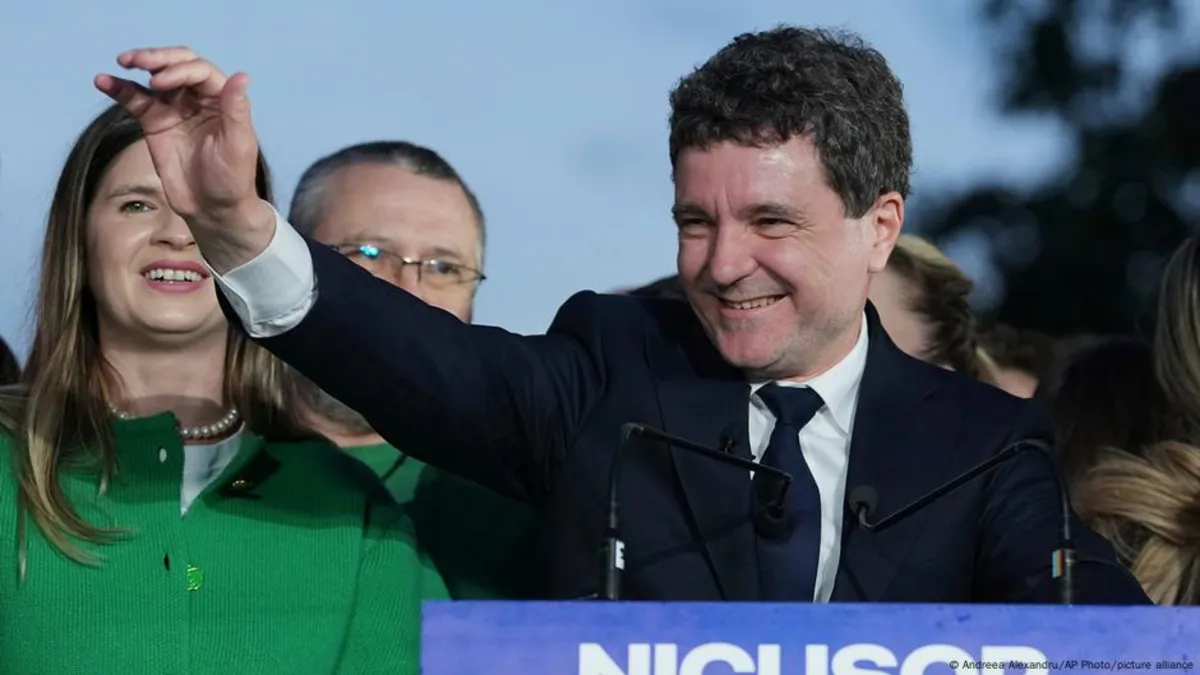
In a significant political development for Romania, Nicusor Dan, the pro-European Union mayor of Bucharest, has won the presidential runoff against George Simion, the hard-right leader of the Alliance for the Unity of Romanians (AUR). This election, held on May 18, 2025, marks a pivotal moment in Romania's political landscape, reflecting a preference for centrist, pro-EU policies among the electorate.
During the tense vote count, Nicusor Dan secured approximately 54% of the votes, while Simion trailed with about 46%. Despite the official results, Simion declared his party the winners, claiming to represent the voice of the Romanian people. He previously suggested, without evidence, that electoral fraud had influenced the outcome.
The election followed the annulment of a previous vote due to allegations of electoral violations and suspected Russian interference, which had cast a shadow over Romania's democratic processes. Romanian officials have voiced concerns regarding these foreign influences, emphasizing the need for a transparent electoral environment.
Following his victory, Dan expressed his intention to form a coalition government with all centrist, pro-European parties in parliament, including the Social Democratic Party (PSD), the National Liberal Party (PNL), the Save Romania Union (USR), and the Democratic Alliance of Hungarians in Romania (UDMR). He aims to initiate coalition talks shortly, demonstrating his commitment to inclusive governance.
As an independent candidate and staunch supporter of the European Union and NATO, Dan campaigned under the banner of change, promising to address the needs and frustrations of all Romanians, including those who supported Simion. "A fundamental change is needed in the way political parties function," Dan stated, reflecting his desire for a reformed political landscape in Romania.
In his first address after the election, Dan acknowledged the economic challenges that lie ahead for Romania. He emphasized the need for patience and hope among citizens as the country navigates through a period of necessary economic rebalancing. "When Romania goes through difficult times, let us remember the strength of this Romanian society," he urged, highlighting the resilience of the Romanian people.
The election was not without controversy. French officials denied allegations made by Pavel Durov, the founder of Telegram, who claimed that a Western government had sought to silence conservative voices in Romania. The French Foreign Ministry firmly rejected these accusations, calling them unfounded and a distraction from the real threats posed by foreign interference, particularly from Russia.
Voter participation in the runoff was notable, with reports indicating that over 4.6 million people, or 25% of eligible voters, had cast their ballots by noon on the election day. This turnout reflects a significant engagement from the Romanian populace, eager to express their political preferences following the turmoil of the prior election.
The victory of Nicusor Dan in Romania’s presidential runoff signals a shift towards pro-European policies amidst a backdrop of political upheaval. As he embarks on coalition talks and prepares to govern, the coming months will be crucial in determining Romania's path forward, especially in relation to its economic challenges and the ongoing threats of external interference in its democratic processes.